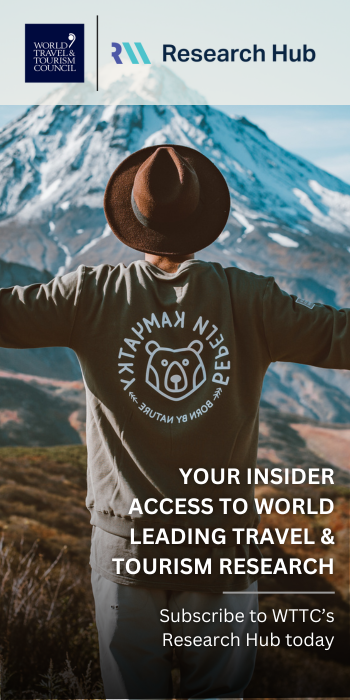Fostering health for all in Travel & Tourism

The Covid-19 pandemic highlighted the deep connections between human health, business resilience, and environmental sustainability. For the Travel & Tourism sector, adopting a Health and Wellness framework offers a powerful way to integrate sustainability, promote equity, and enhance resilience. This approach ties health and wellness to business strategy across four key pillars: consumers, employees (including supply chains), communities, and the environment.
- Consumers: Promoting well-being through services Travel choices are increasingly influenced by health considerations. From wellness-focused retreats to safer travel assurances, consumers are seeking experiences that prioritise well-being. Businesses can meet this demand by embedding health-conscious measures, such as promoting outdoor activities, offering nutritious menus, and maintaining stringent hygiene standards. By aligning with conscious consumerism, organisations not only enhance customer trust, they alsosupport sustainable practices.
Sign in to access actionable insights
The Covid-19 pandemic highlighted the deep connections between human health, business resilience, and environmental sustainability. For the Travel & Tourism sector, adopting a Health and Wellness framework offers a powerful way to integrate sustainability, promote equity, and enhance resilience. This approach ties health and wellness to business strategy across four key pillars: consumers, employees (including supply chains), communities, and the environment.
- Consumers: Promoting well-being through services Travel choices are increasingly influenced by health considerations. From wellness-focused retreats to safer travel assurances, consumers are seeking experiences that prioritise well-being. Businesses can meet this demand by embedding health-conscious measures, such as promoting outdoor activities, offering nutritious menus, and maintaining stringent hygiene standards. By aligning with conscious consumerism, organisations not only enhance customer trust, they alsosupport sustainable practices.
- Employees and supply chains: Investing in people A Culture of Health extends to employees and supply chain workers, with a focus on their physical and mental well-being. Covid-19 highlighted the vulnerabilities of tourism workers, from job insecurity to mental health struggles. By providing fair wages, mental health resources, and safe working environments, businesses can foster loyalty and productivity. Prioritising local sourcing within supply chains reduces environmental impact while supporting regional economies.
- Communities: Strengthening local connections Tourism businesses play a vital role in supporting the health of communities where they operate. Initiatives that preserve local culture, invest in infrastructure, or promote equitable visitor flows create lasting benefits. The rise of "slow tourism" exemplifies this shift, where travellers seek meaningful engagement with destinations, spending more time exploring local traditions and contributing to the local economy. Supporting community health is not only an ethical imperative but also enhances destination appeal.
- Environment: Safeguarding natural assets Tourism’s reliance on natural and cultural resources demands responsible stewardship. Adopting eco-friendly practices—like reducing waste, transitioning to renewable energy, and minimising water usage—helps mitigate the sector’s environmental footprint. Measuring the true cost of tourism through tools like impact-weighted accounts ensures businesses remain accountable. By framing environmental conservation as an essential component of health, businesses align with global sustainability goals.
Why the Culture of Health matters Building a Culture of Health in Travel & Tourism creates shared value for businesses, communities, and the planet. It fosters trust among consumers, strengthens operational resilience, and contributes to global health equity. As the sector rebuilds post-pandemic, health-centric strategies will be pivotal in meeting both immediate challenges and long-term sustainability goals.

















